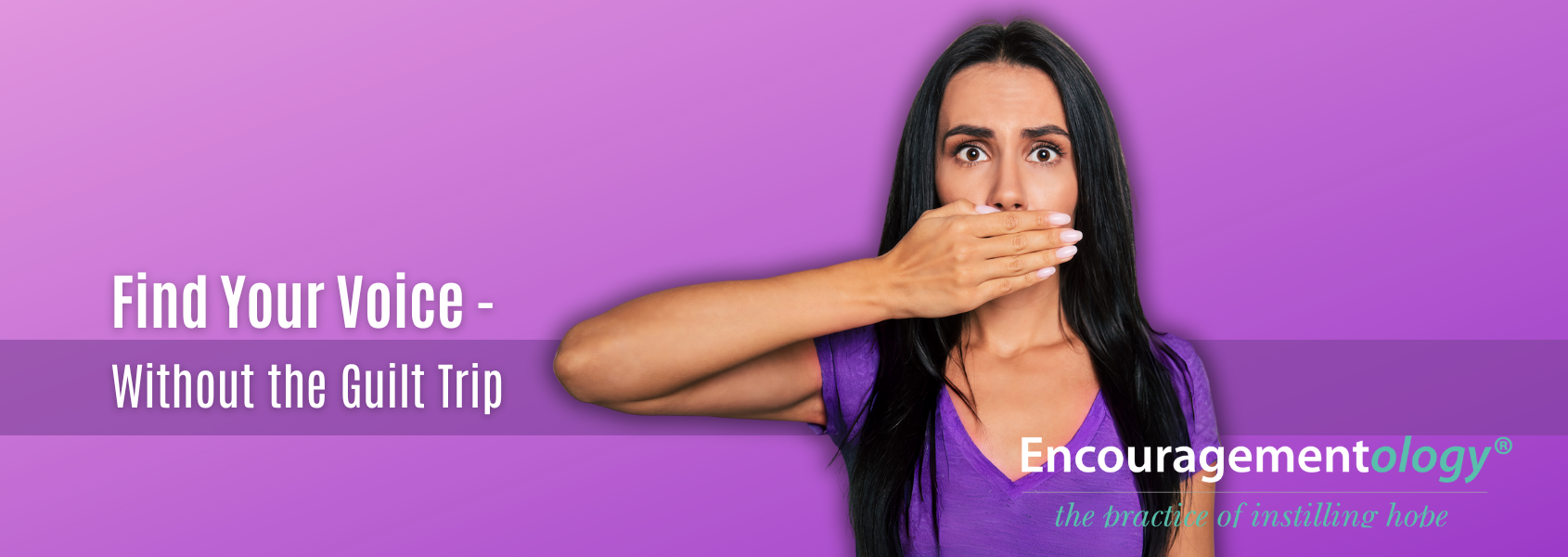SHOW NOTES:
On this show, we’re talking about what it really means to find your voice—without dragging along the guilt trip. Maybe you’ve been biting your tongue, nodding when you mean to shake your head, or saying “sure” when every fiber of your being is screaming “no!” Sound familiar? You’re not alone. So many of us, especially the people-pleasers and peacekeepers of the world, have been taught to smooth things over rather than speak up. But here’s the thing—your voice matters, and your truth deserves airtime.
Now, I’m not talking about shouting from the rooftops or steamrolling over others. This isn’t about turning into someone you’re not. This is about tuning into your own inner frequency and having the confidence to let it come through—clearly, calmly, and guilt-free. Whether it’s saying no without a 10-minute apology, standing up for something you believe in, or simply expressing your opinion without second-guessing yourself, this episode is for you. Let’s explore the sticky stuff that keeps us quiet—and learn how to speak up with grace, confidence, and self-respect.
Let’s start by defining the core ideas behind this episode—because “finding your voice” can mean different things depending on where you are in your personal journey. At its essence, finding your voice is about recognizing your thoughts, beliefs, and needs as valid—and having the courage to express them. It’s about being authentic, honest, and clear, without feeling like you need to water yourself down to make others comfortable.
Now let’s talk about why we don’t. One big reason? People-pleasing. This behavior often stems from a fear of rejection or conflict. If you grew up in an environment where keeping the peace meant keeping quiet, then you might equate speaking up with being “too much” or “too selfish.” Over time, that internalized guilt becomes the bouncer at the door, turning away your opinions before they ever make it to the surface.
And then there’s the Guilt Trip—that little voice in your head that says, “You should just let it go,” or “Don’t make this a big deal,” or “You’re probably overreacting anyway.” But that guilt isn’t always a moral compass; sometimes, it’s just conditioning. A signal that you’ve been taught to value harmony over honesty, even when honesty is exactly what’s needed.
We also need to clarify the difference between assertiveness and aggressiveness. Speaking your truth doesn’t mean shouting others down. Assertiveness is respectful communication—it’s saying what you mean, meaning what you say, and doing so in a way that doesn’t trample over someone else’s experience. That’s the sweet spot: clarity without cruelty, directness without drama.
So, if you’ve ever struggled to say “no” without giving an entire TED Talk in justification, or if you’ve nodded through conversations where you disagreed silently, just know—this episode is here to help you build that muscle. You’re not wrong for having an opinion. You’re not bad for needing boundaries. And you’re certainly not selfish for speaking your truth.
Stop the Guilt: 3 Ways to Take Back Your Power to Say No
When Guilt Keeps You From Setting Boundaries
5-Minute Guided Meditation to Find Your Voice and Speak Your Truth

CHALLENGE: Stop waiting for the perfect moment, the perfect words, or the perfect response—and just start speaking your truth. Not to please, not to appease, but to honor your own voice and values.
I Know YOU Can Do It!

